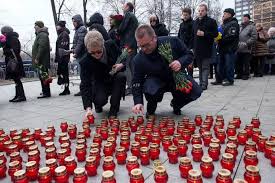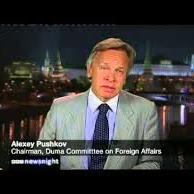(The Monkey cage/WP) The problem moving forward – for analysts, opposition, patriots, and citizens – is not really explaining who assassinated Boris Nemtsov. Most people already have their own theories about the culprits, and the official investigation is unlikely to convince them otherwise. The real problem is explaining why.
For Nemtsov’s supporters and admirers, the Kremlin’s brand of hateful, anti-opposition and “fifth column” propaganda serves as explanation. The arguments are eloquent and moving, and arguments against hate are hard to resist. They also don’t have to explain the timing of Nemtsov’s assassination. Indeed, why now? Nemtsov is rumored to have been preparing to release a report documenting Russian troops’ presence in Donetsk, but this is hardly likely to have been threatening to the Kremlin — certainly, no more threatening than the Nemtsov-Martynyuk report on corruption in the preparations for the Sochi Olympics. The anti-war march (“Spring”) planned for March 1 also was never going to create a Maidan in Moscow. The lack of explanation for the timing of Nemtsov’s assassination probably feeds the notion that a permissive atmosphere of hate enabled national tragedy. Such explanations are a tacit acknowledgement that the killing just doesn’t make sense, that Russian President Vladimir Putin doesn’t clearly benefit, and that nobody can produce a credibly rational motive.
It is striking that the apparent lack of rational motive serves as the starting point for pro-Kremlin conspiracy theories. Putin stated almost immediately that it was clearly a contract killing and intended as political provocation. Chechen leader Ramzan Kadyrov blamed Western security services. TheInvestigative Committee’s handful of candidate motives ranged from Ukrainian radicals to shady business dealings, with a dash of jealous boyfriend and (once more) provocation. Provocation has been a favorite theory of the Kremlin, and Putin’s 2012 suggestion that the opposition might murder one of its own to frame the government and stimulate mass disorder is gaining new currency. Pro-Kremlin bloggers come close to making the same claim in painting the liberal opposition as more hateful than the regime’s supporters. Nevertheless, they still lack any explanation for the timing of Nemtsov’s assassination.
In this light, it’s worth remembering the flurry of debate when observers were taken surprise by Putin’s apparently “irrational” occupation and annexation of Crimea: There was no question of culpability, but the rationale remained elusive (except in the Russian press, of course). To some extent, it remains in question as realpolitik continues to vie with domestic politics and nationalism as contending explanations for Putin’s war in Ukraine.
Similarly, Nemtsov’s assassination is unlikely to be solved to anyone’s satisfaction. Differences over explanations will follow political cleavages in Russia, further muddying the waters. It is tempting to look for a “logic of consequence,” and imagine that someone in power (or close to power, or even just hoping to be closer to power) perhaps foresaw a mounting economic crisis and decided to send a warning message to any current or would-be opposition members to stay off the streets. But identifying such logics is irretrievably a post hoc exercise, especially since political timing in Russia is no longer defined by routine politics. After all, governors and local politicians scarcely bother to muster campaigns anymore (as Nemtsov observed in 2013). Putin and Medvedev’s “castling” maneuver made a mockery of the country’s highest elected office.
If we must ascribe rationality to this act of political terror, what makes it rational is not permissive state propaganda but the certainty of any lack of consequences. Here’s the scariest possibility: what if Nemtsov’s assassination is not a rupture in Russian politics? What if the Kremlin’s propaganda about the “fifth column” (an allegedly treasonous liberal opposition) hasn’t encouraged an atmosphere of hate so much as it has simply merged with the white noise of a deeply cynical and pervasively corrupt form of politics? More pointedly, what if it has everything to do with a politically apathetic citizenry that is inclined to believe that all politics are under the influence of shadowy global forces beyond anyone’s control? If the terrorists who committed this act know anything, it is that there will be no popular uprising in Russia. Opinion polls repeatedly show that Putin gets credit for positive developments (economic growth, the Minsk agreements) while evading blame when things turn bad. Russians believe an opposition is needed, but few ever take the opposition seriously. And Nemtsov will be mourned as a good man and even as a patriot, but not martyred.
– – – – –
See the original post at The Monkey Cage











